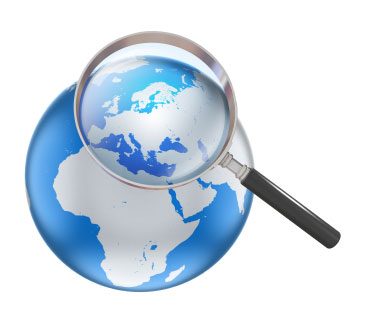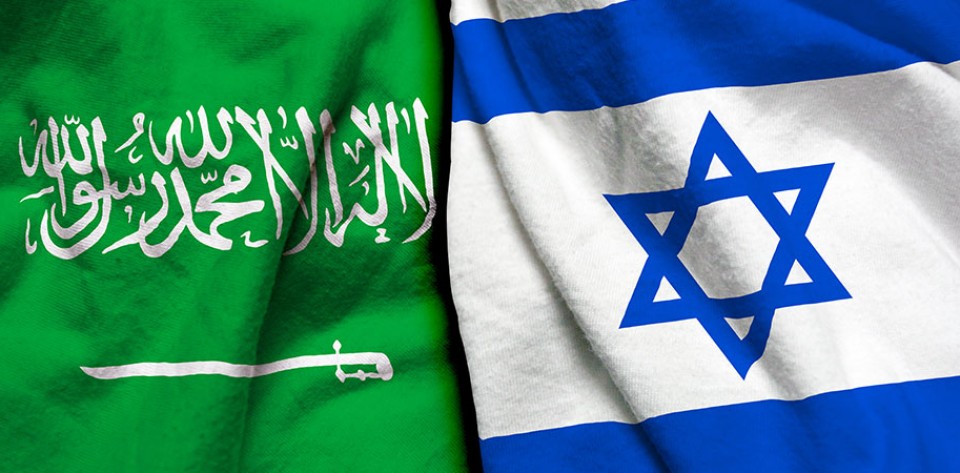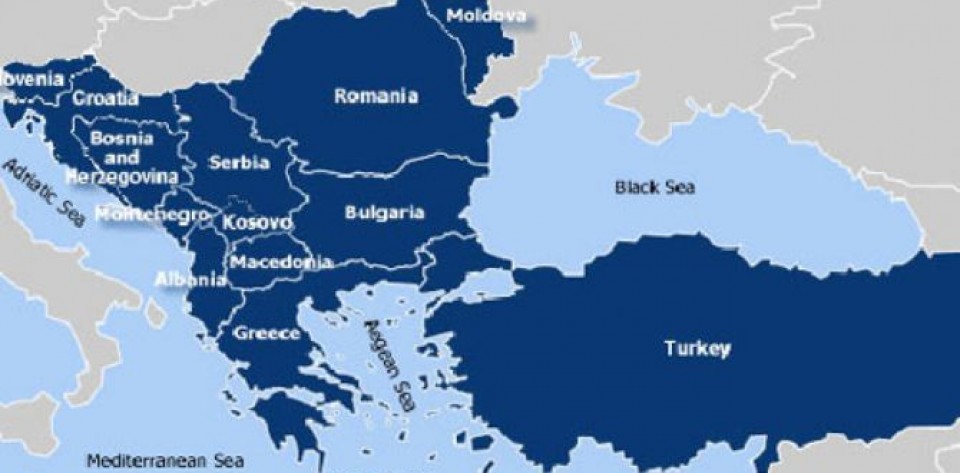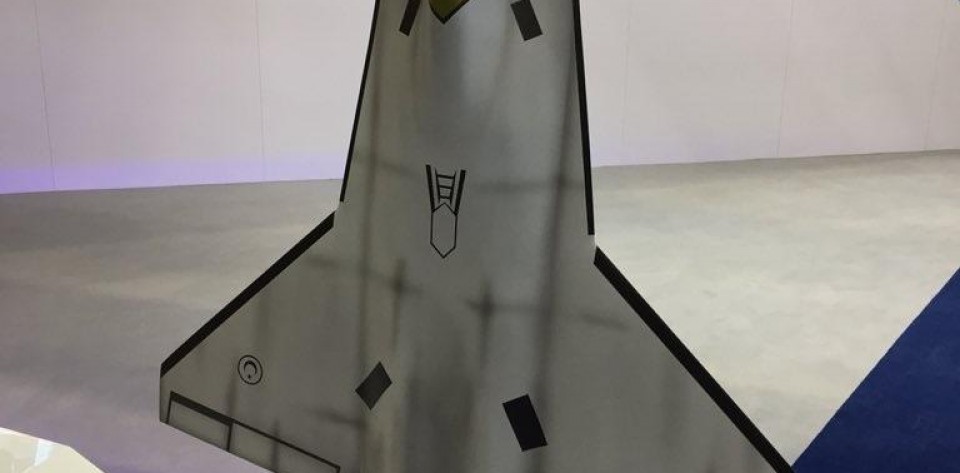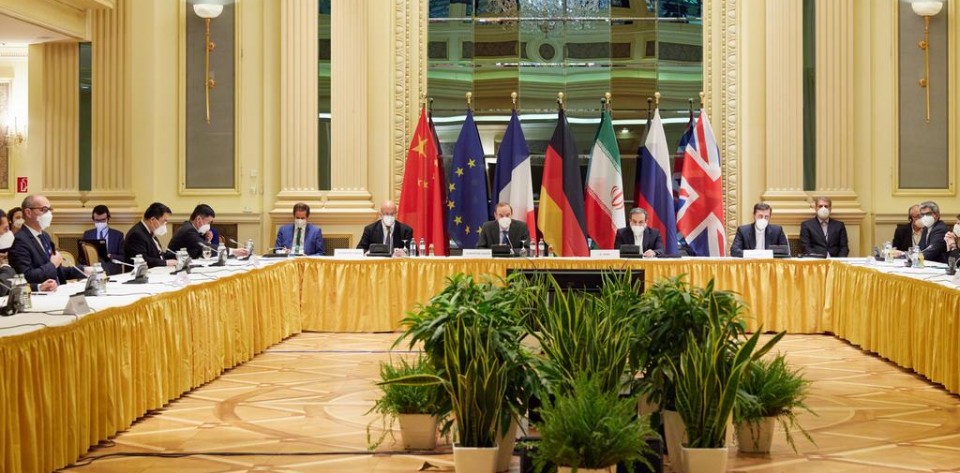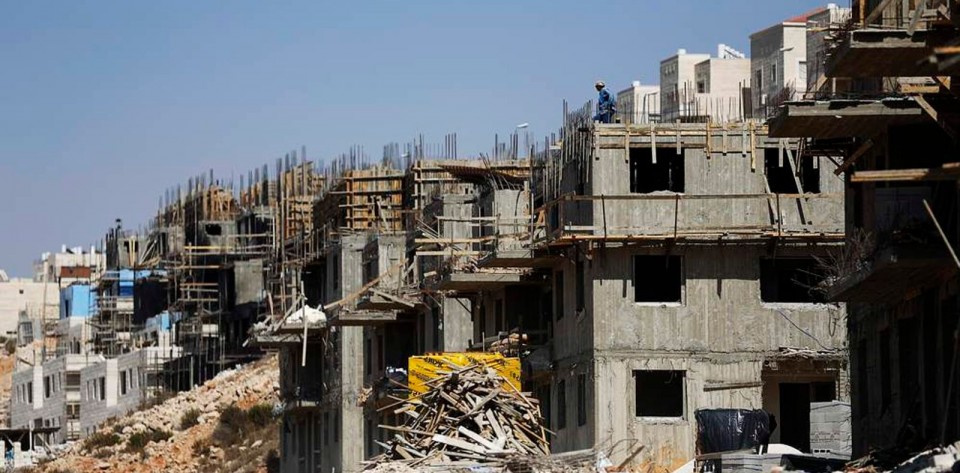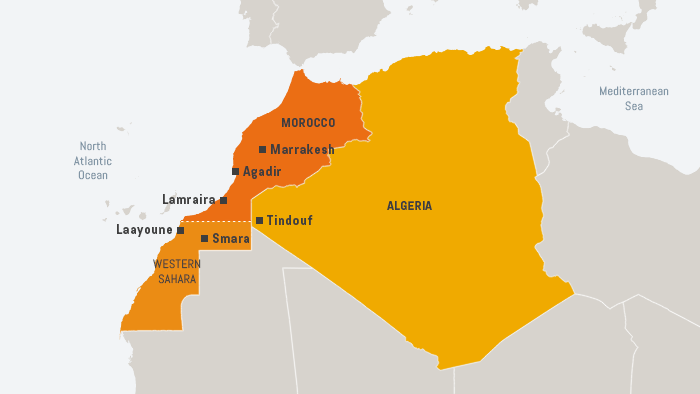
Western Sahara is a disputed territory on the northwest coast and in the Maghreb region of North and West Africa. About 20% of the territory is controlled by the self-proclaimed Sahrawi Arab Democratic Republic, while the remaining 80% of the territory is occupied and administered by neighboring Morocco. The population is estimated at just over 500,000, of which nearly 40% live in Laayoune, the largest city in Western Sahara.
Sovereignty over Western Sahara is contested between Morocco and the Polisario Front (UN recognizes it to be the legitimate representative of the Sahrawi people and maintains that the people has the right for self-determination) and its legal status remains unresolved. The United Nations considers it to be a "non-self-governing territory".
Formally, Morocco is administered by a bicameral parliament under a constitutional monarchy. The last elections to the parliament's lower house were deemed reasonably free and fair by international observers. The Morocco-controlled parts of Western Sahara are divided into several provinces that are treated as integral parts of the kingdom. The Moroccan government heavily subsidizes the Saharan provinces under its control with cut-rate fuel and related subsidies, to appease nationalist dissent and attract immigrants from Sahrawis and other communities in Morocco proper.
Meanwhile, Algeria appears as a main actor and negotiator in opposition to Morocco since the beginning of the Western Sahara conflict. While Algeria recognizes the Sahrawis' right to wage an armed struggle against Morocco, and has helped to equip the SPLA (Sahrawi People’s Liberation Army), the government also seems to have barred Polisario from returning to armed struggle after 1991, attempting to curry favor from the US and France and to avoid inflaming its already poor relations with Morocco. With US recognizing the Western Sahara under Moroccan sovereignty, many things might have already changed.
Recognizing Moroccan sovereignty over Western Sahara was an astonishing withdrawal from the principles of international law and diplomacy that US has been respecting for years. It certainly threatens to complicate US relations with Algeria. More importantly, it presents negative consequences on the overall situation in North Africa.
Trump administration promoted peace in Middle East against possible conflict in Western Sahara. The peace in Middle East construes not only recognition of Israel by Arab Nations such as UAE, Saudi Arabia, Sudan, Morocco, Bahrein and possibly Oman in future. But also it might address the Palestinian conflict. And Trump administration clearly favors peace in Middle East against possible conflicts in Western Sahara. However, US has abandoned the most important principle; self-determination which is the foundation principle that US was founded.
US policy change has no or less support in UN which still considers that Western Sahara people should determine the future of the territory. Moreover, it would send complicated messages to US allies that Sahrawi People's Libenon-acquisition of territory by force and the right of self-determination are pick-and-choose principles for US. There could also be an escalation of hostilities between Morocco and the Polisario Front, which represents the people of Western Sahara, or an opening for a Moroccan-Algerian confrontation.
Moreover, Al-Qeada in Islamic Maghreb and other terrorist groups might exploit the growing tensions in the region. This might complicate the US anit-terrorist campaign cooperation in the region, the commercial relations and would create obstacle to deepen military relations.
US has rashly abandoned its principles for a gain that will make no difference to the position of the international community and to the resolution of the conflict. Even, it has the potential to deter the stability and create violence in the region. Many U.S. allies and others have already made statements to that effect.
We shall see if president-elect will rescind the action. Unless done, it has the potential to complicate the stability in one part of the region versus the peace in another of part of the region. However, is it worth to do so, time will reveal that.


